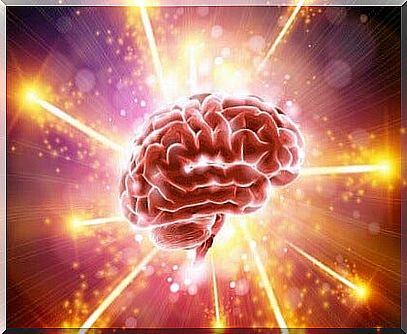Inflammation And Depression

According to a study conducted by Canadian researchers , major depression is linked to brain inflammation. The study was published in the journal Archives of General Psychiatry . These results have an important influence on the development of new treatments for depression.
What is inflammation?
Inflammation is the immune system’s natural response to infection or disease. The body often resorts to this mechanism to protect itself. For example, when we pull a muscle or break a bone, inflammation occurs in this area. The same principle applies to the brain as well.
However, excessive inflammation can also be harmful. There is increasing evidence that inflammation causes some of the symptoms typical of depression, such as listlessness, loss of appetite, and trouble falling asleep.
The study
The aim of this new study was to find out whether inflammation is a controlling factor in the development of depression, independently of other physical ailments.

To study this , the scientists used positron emission tomography (PET) to scan the brains of 20 patients with depression and 20 healthy people. The healthy people formed the control group.
Specifically, the team looked at the activation of microglia. These are cells of the immune system that play a key role in inflammatory reactions in the brain.
The PET images showed significant inflammation in the brains of the depressed patients. It also found that this inflammation was more severe in those who suffered from more severe depression. The brains of patients suffering from clinical depression showed a 30% increase in inflammatory parameters.
Previous studies
Previous studies analyzed parameters of inflammation in the blood of patients with depression to find out whether inflammation is a result of depression or a factor that makes it worse.
A 2012 study by researchers at the Duke University Medical Center (California, USA) found a link between the number of depressive episodes patients experienced during the study and the level of a marker of inflammation, the C-reactive Protein (CRP).
The researchers concluded that depression is more likely to contribute to inflammation in the body than it is as a result of previous inflammation.

The importance of inflammation in treating depression
Experts point out that this discovery provides the most convincing evidence to date that if one is going through a period of severe depression, one suffers from brain inflammation.
According to the researchers, this discovery also has important implications for the development of new treatments for patients suffering from depression. It creates a new potential sense of treating inflammation of the brain or, as it heals, attributes it to a positive role in relieving symptoms.

Major depression affects 4% of the total population. However , antidepressants do not work in over half of people who have severe depression.
Current treatments are not aimed at reducing inflammation. Therefore, it is the task of future research to find out to what extent depression can be treated with anti-inflammatory drugs.
Depression is a complicated disease that can arise due to various factors. Today, thanks to studies like this, we can add one more piece of the puzzle to better understand this disease.









